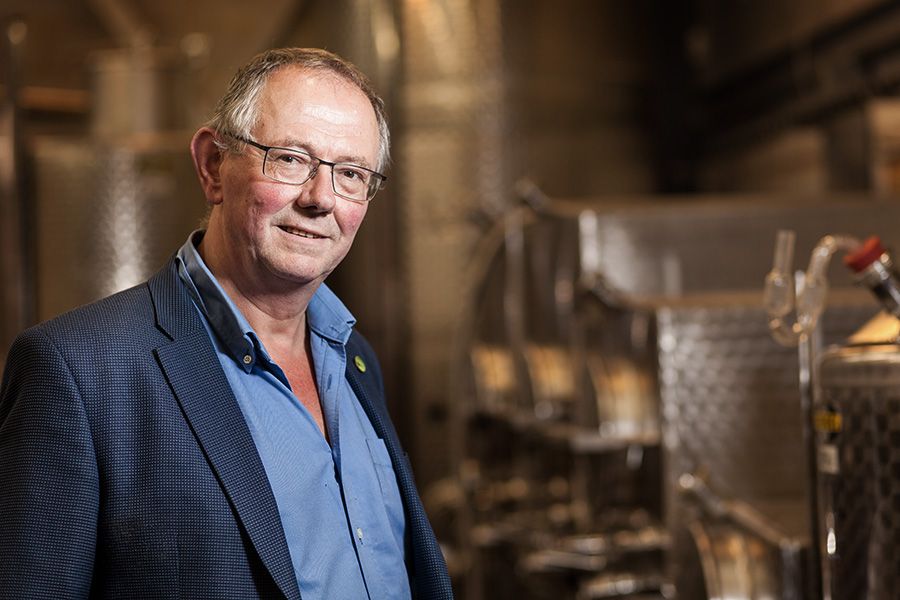There are four undergraduate courses, a post-graduate course plus various other part time courses on offer. Students also make up to 30,000 bottles of commercially finished wine. Although dismissive at first, the UK wine trade now contacts Plumpton directly when it has vacancies to fill.
Since the vast majority of university tuition fees have rocketed to an annual £9,000 it’s hardly surprising that prospective students have become much more discriminating in what course to undertake, where to study, and crucially, if they believe the course offers value for money. With some degrees the benefits are pretty obvious – come out of Oxford with a first in PPE, and you’re pretty much guaranteed a role in the Cabinet, if not the top job – well, it worked for David Cameron and Boris. A maths degree from Cambridge and you’re a shoo-in for an eye-watering salary with a top City firm.
But can a wine degree from East-Sussex-based Plumpton College guarantee you a similar level of success in the wine industry, or can you simply learn on the job, without having to spend three years of your life in the classroom, not to mention being saddled with student debt for years to come?
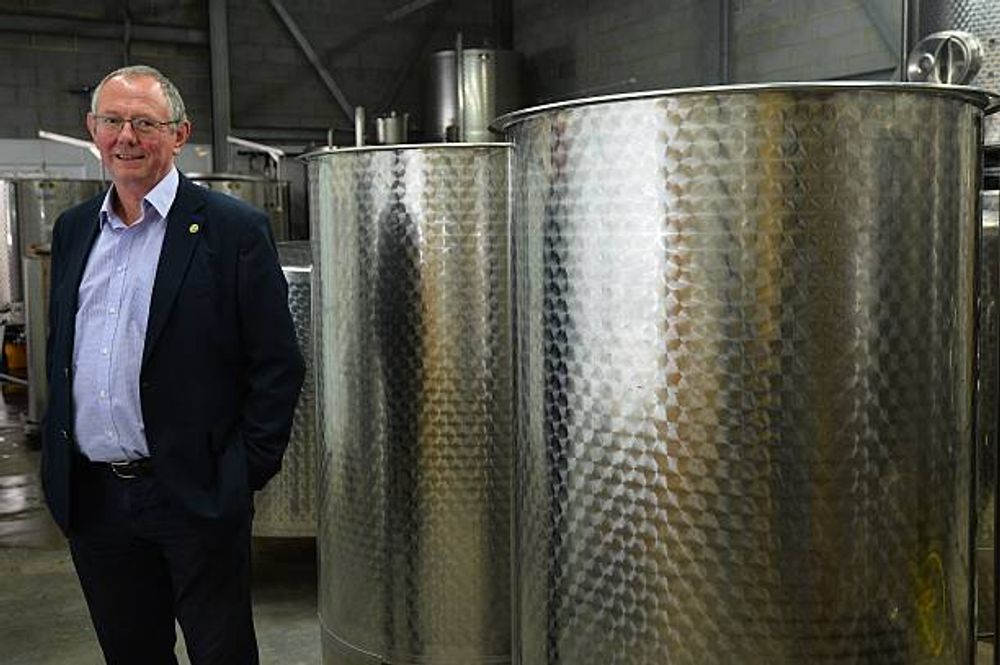
Chris Foss in Plumpton’s winery
So what is the track record like of people having done the courses?
Chris Foss, Plumpton’s head of wine, says his graduates are at a significant advantage compared to other candidates when looking to pursue a career in the wine industry.
Not only do they graduate with a solid foundation in an understanding of wine and its business, but employers are now increasingly approaching Plumpton directly, if they have vacancies to fill.
Foss admits that in the early days, the wine trade was fairly dismissive of the benefits of taking on employees with a wine degree, preferring to train them up themselves. “However, they are now increasingly aware of the advantage of taking on people who are already trained up in wine, and with specialist business knowledge too. It saves a lot of time.”
The employment prospects for Plumpton graduates are excellent, according to Foss, who points out that recent alumni are working for a variety of big hitters in the wine world including Laithwaites, Borough Wines, Oddbins, London Cru, Virgin Wines and Mentzendorff, while others have gone into distilling, bar owning and sommelier work. Some have even dipped their toes into the murky world of journalism.
“On the production side, our graduates all tend to drift off to do vintages around the world and we tend to lose track of them for a couple of years, only to find they’re running a big operation in Turkey or wherever.”
Having spent most of his career within the wine trade, Foss certainly knows what he’s talking about. Half French and Bordeaux trained, after a microbiology degree in the UK, he headed to France to study wine, and to manage the family vineyard in the Entre-Deux Mers region. During his time there he worked in vineyards and wineries in Sauternes (Chateau d’Yquem, no less) and St Emilion, becoming winemaker for the GFA Leclerc vineyard group.
After moving to the UK in 1985 he became interested in education, and following a postgraduate teaching certificate and three years in secondary schools, he moved to Plumpton in 1988 to start the course in wine production.
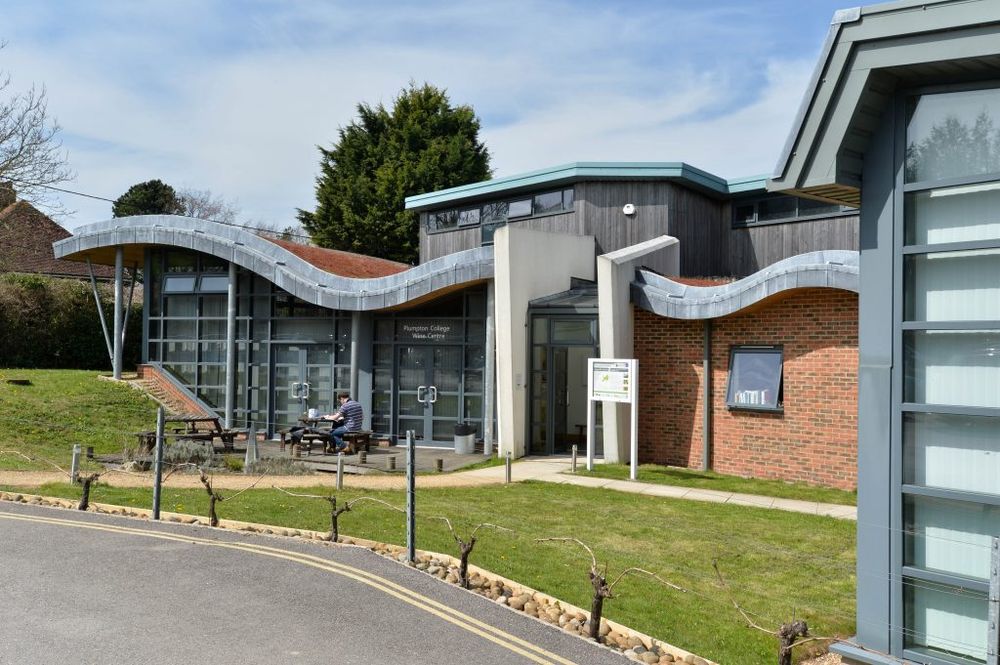
Plumpton College’s wine centre
So what makes Plumpton unique?
Well, its been offering degree courses in wine business and production in collaboration with Brighton University since 1996, and Foss has been at the helm since the outset.
“We are the only English language degree course in Wine Business & Wine Production in Europe, teaching around 130 students,” he says. “Being based in the UK, gives us a new world attitude within Europe, and close to the influence of the London wine trade which is the most varied in the world. The courses offer a really good combination of stock business skills and learning a lot about wine.”
In most other countries, he points out, you can either go to a community college and learn how to drive a tractor and tend vines, or go to university and do science, with little hands-on experience. “Here at Plumpton we offer our students the opportunity to do both, so they might be learning about wine anatomy in the morning and driving tractors later the same day.”
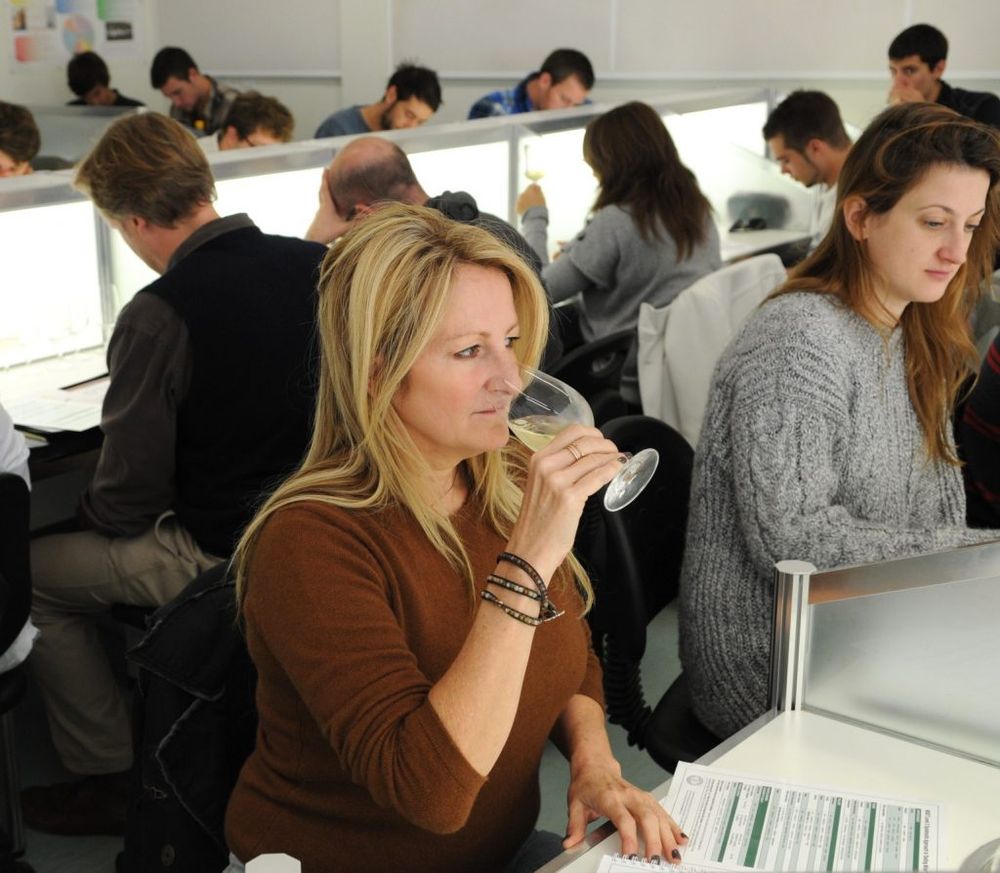
Mastering the fine art of tasting
Foss points out there are many different aspects to the wine business, offering a plethora of opportunities for a graduate of one of Plumpton’s wine courses.
“There are so many different facets to the wine business, and it’s an endlessly fascinating product. Some people think winemaking is a glamorous job, and certainly as a successful winemaker you do get treated like the prodigal son. But working in wine, you have to love the product.”
“In the UK, lots more people are now planting, but not so many people are establishing wineries, so it’s more a question of the large wineries getting bigger, which means fewer opportunities for winemakers.” But Foss points out that a Plumpton degree is in effect a passport to travel the world, with graduates visiting California, France, or anywhere that takes their fancy working on a vintage or two.
Plumpton offers four undergraduate wine courses, including a BA in Wine Business and a BSc in Viticulture and Oenology. As part of the BA Wine Business degree, students learn about the key wine regions of the world with a chance to specialise in modules covering areas such as sparkling wine, wine distribution channels, wine sensory evaluation and consumer behaviour, as well as developing their business skills.
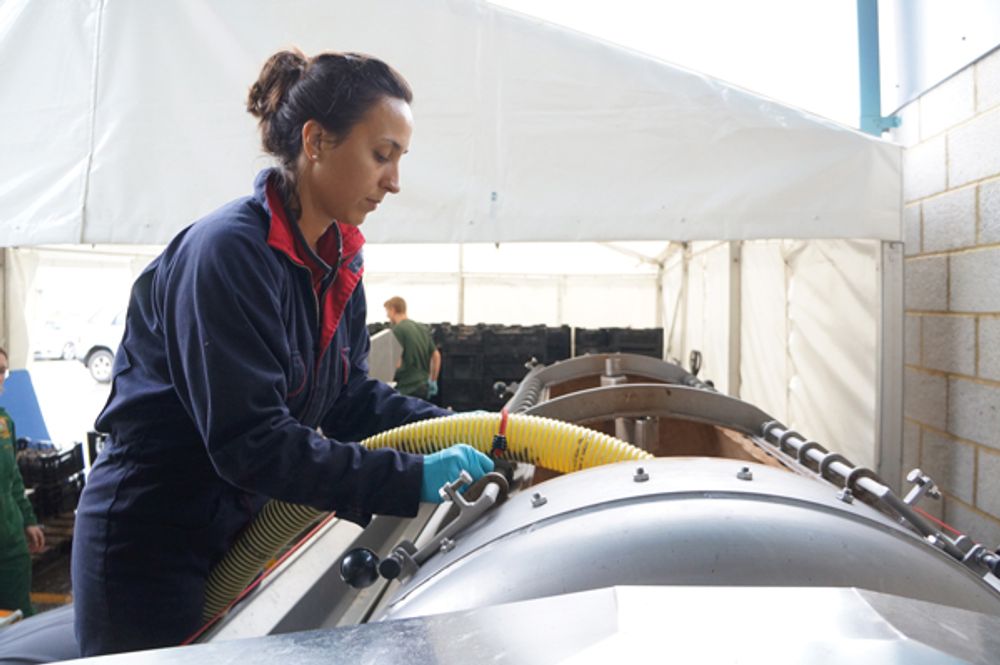
Viticulture and oenology graduate Inma Ollero-Bianchi making Plumpton wine at the college
The BSc course in Viticulture and Oenology is unique to Plumpton. “If you’re looking to explore the science of grape growing and winemaking and gain the knowledge and skills to purse a career in wine production, this could be the perfect course,” claims Foss.
There is a large practical element to both courses, which enables the students to get their hands dirty in the 17.5 acres of vineyards managed by Plumpton. These are situated over three different sites and produce between 20,000 – 30,000 bottles a year, since taking over the Ditchling vineyard in the early 1990s. One of the vineyards are currently fallow, but they will be replanted in May.
A third of the varietals grown are classic sparkling wine grapes, a third red and a third white, so Pinot Meunier, Pinot Gris, Bacchus, Chardonnay, a bit of Ortega and Riesling as well as the little known German red variety Acolon which Plumpton uses to make a “very good rose” dominate the plantings. The college is also trialling the growth of new disease-resistant grapes from Switzerland and Germany. “It’s quite a big area, and we are trying them out as potential producers of sparkling wine.”
As well as its vineyards, Plumpton also has its own fully equipped commercial winery, a purpose built wine centre, with teaching, research and conference facilities, and a dedicated wine evaluation room.
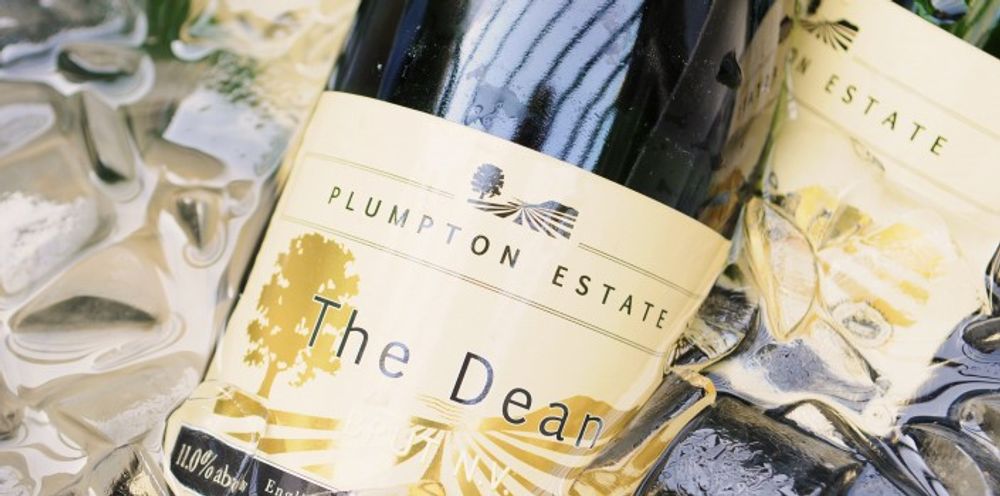
Top of class – one of Plumpton’s award winning wines, the Dean Brut sparkling. Plumpton Estate Cloudy Ridge Rosé 2014
The wines produced by the college are sold commercially under the Cloudy Ridge label in the local Waitrose, but also in some independent retailers and restaurants in the local area. “The sparkling and sparkling rosé sells well, in fact we could produce three times the amount of sparkling wine we do and still shift it, but the still wine is a bit more difficult to sell, particularly the blends,” says Foss. “We’re in the process of re-branding the wines and in May we are coming up with a new concept and getting away from other brands in this area which are based on estate. Our new brand will focus on the educational side, so watch this space.”
There are currently ten wine department staff, including four lecturers in wine production and two in wine business who between them teach the full time undergraduate courses in wine. In addition, there are 11 part time courses on offer, attended by over 350 students.
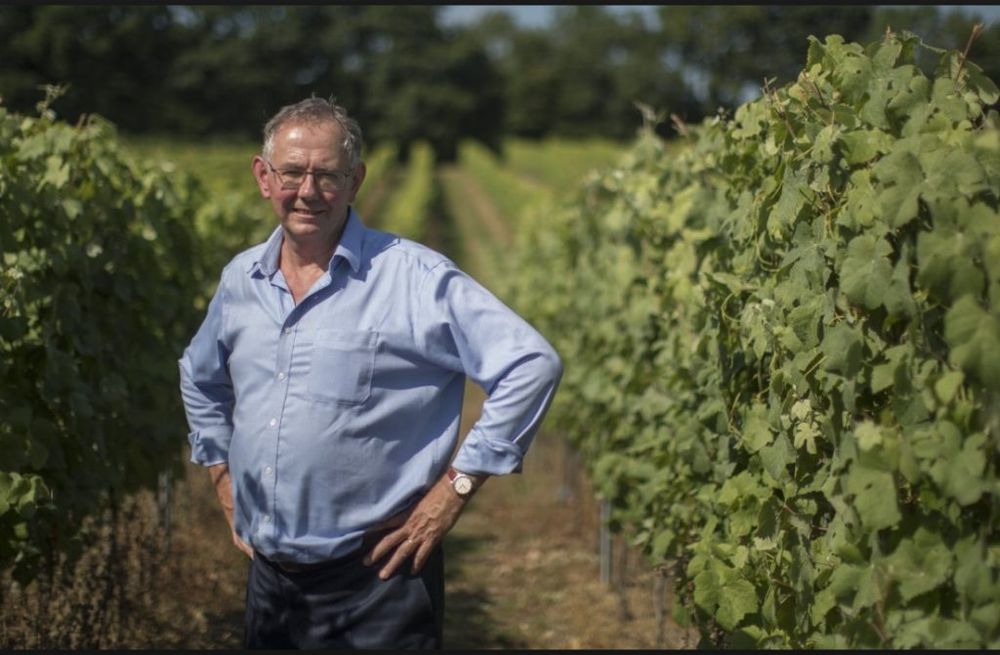
Chris Foss amid Plumpton’s vineyards
The very real negative side effects of Brexit on Plumpton
One of the biggest challenges facing Plumpton at the moment is the looming spectre of Brexit, which Foss says “certainly isn’t making life easier for us. It does our reputation no good whatsoever to tell European students we don’t want to work with them. I think the number of European students will go down, and the Erasmus schemes will be in jeopardy come Brexit.” The other big impact, he said, will be felt in the research arena.
“At the moment we are engaged in research with Rennes university involving Germany and Romania, and normally at this time of year I would have received a couple of proposals from international research teams to sign up to, but that has dried up, and no one has asked us to join them. If things go away it will be much more difficult to do joint research with us.” As an example, he pointed to schemes such as Horizon 2020, the EU’s biggest research and innovation programme with nearly €80 billion of funding at its disposal, which Foss fears will dry up in the UK post-Brexit.
As for the controversial change in government policy regarding the increase in tuition fees, Foss says the only impact it had on the college was to see a massive spike in the number of applicants before the policy came into effect.
For a few lucky students, there’s the opportunity to have their fees partly paid for, thanks to a sponsorship deal provided by Marks & Spencer over the past four years. The top Viticulture and Oenology student has their fees paid by the retailer in the final year, and as part of the arrangement the student makes a bespoke wine which is sold in Marks & Spencer’s flagship store. The student also has the opportunity to work with different areas in the company to enable them to understand and develop the marketing, business plans and distribution channels.“That relationship is continuing, and the scholars have made some really interesting wines over the years,” says Foss.
So does Foss have plans to hang up his lecture notes anytime soon? With talk of the possible introduction of a new course covering not only wine, but also beer, cider and spirits, it seems that Foss has got his hands full for the time being. “No, there’s still far too much that I want to do,” he says. “I’d like to develop the new plantation, broaden our provision into drinks other than wine, and put ourselves firmly on the international map.”
